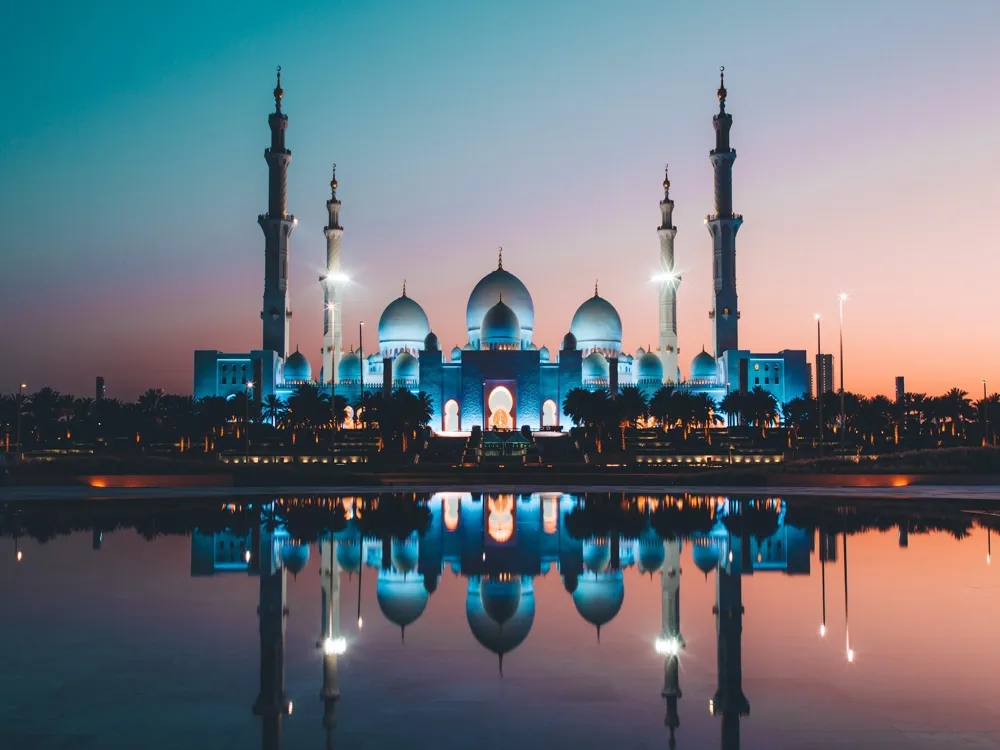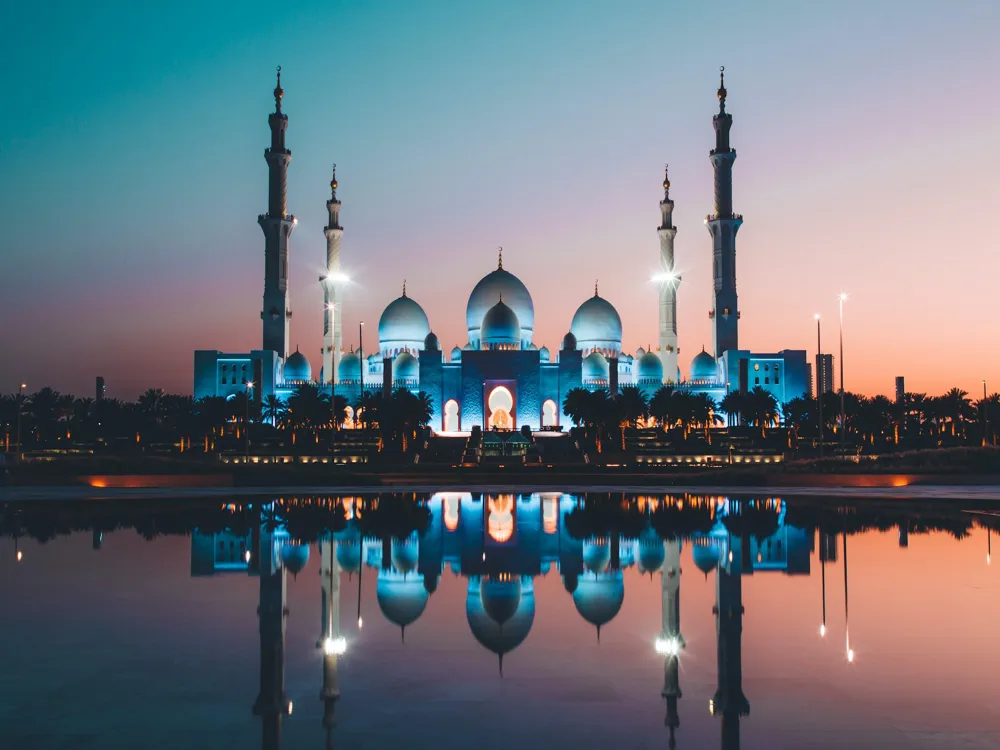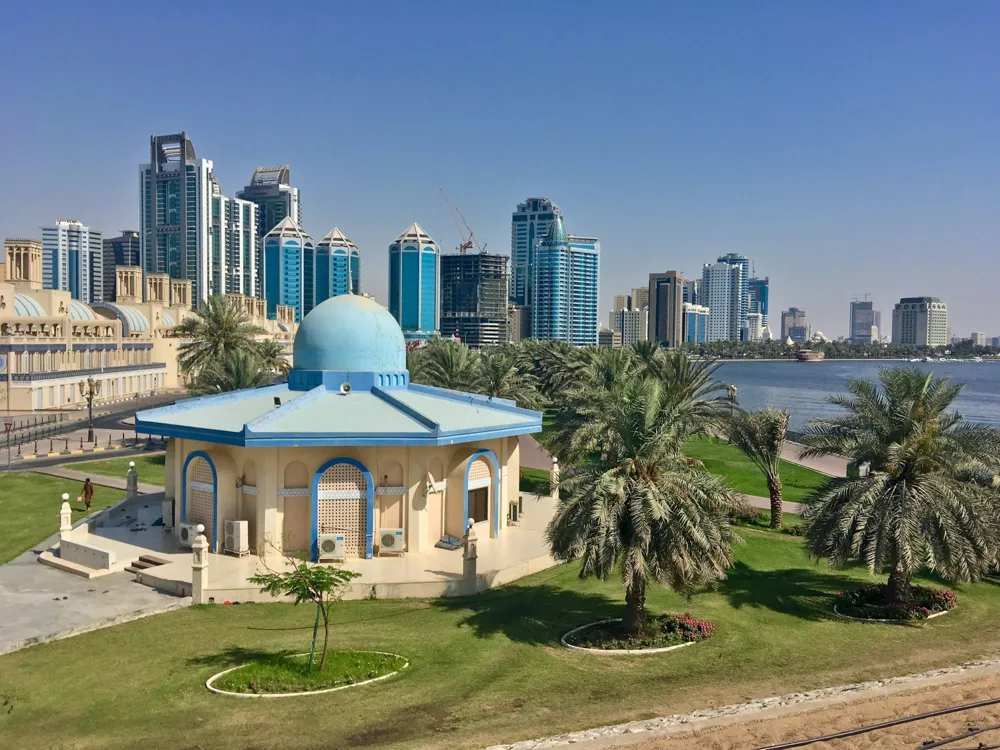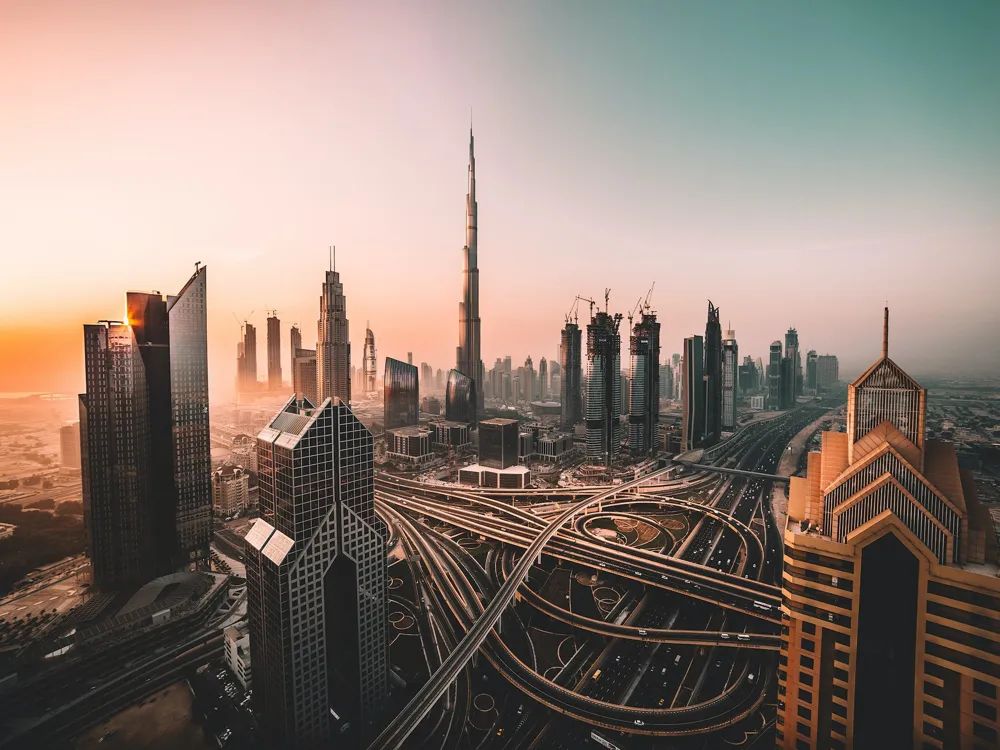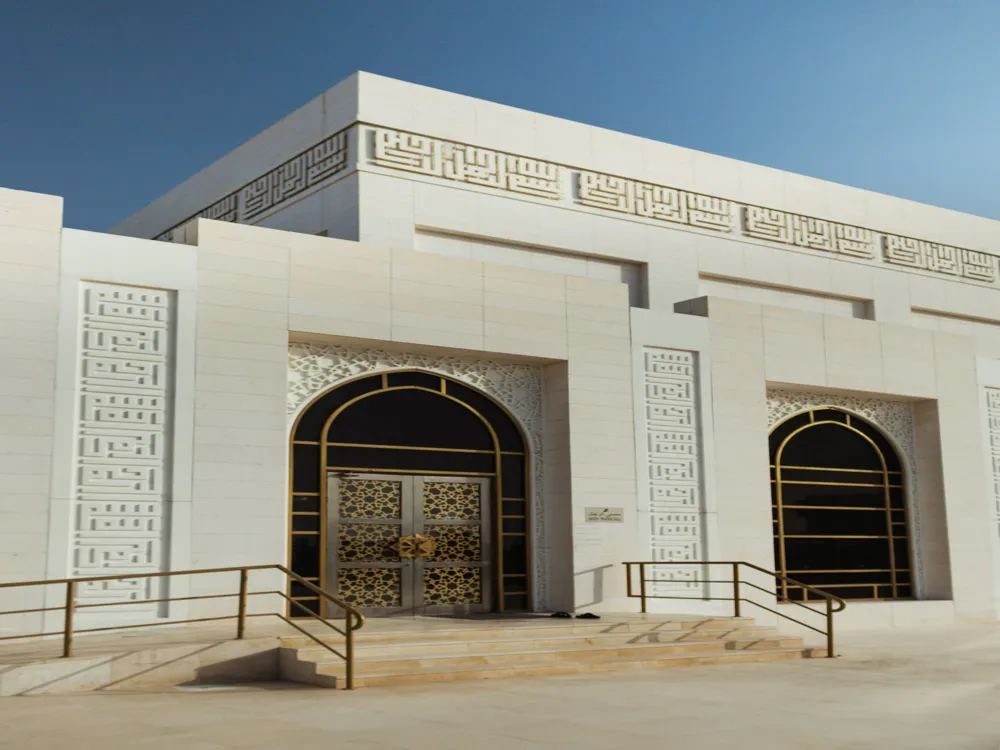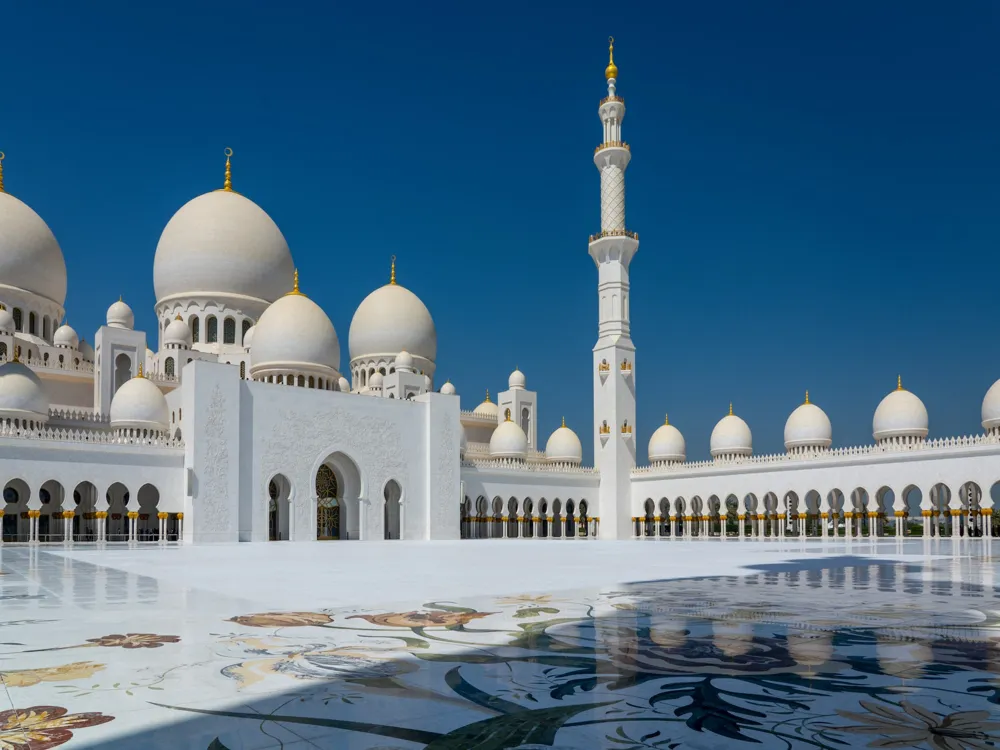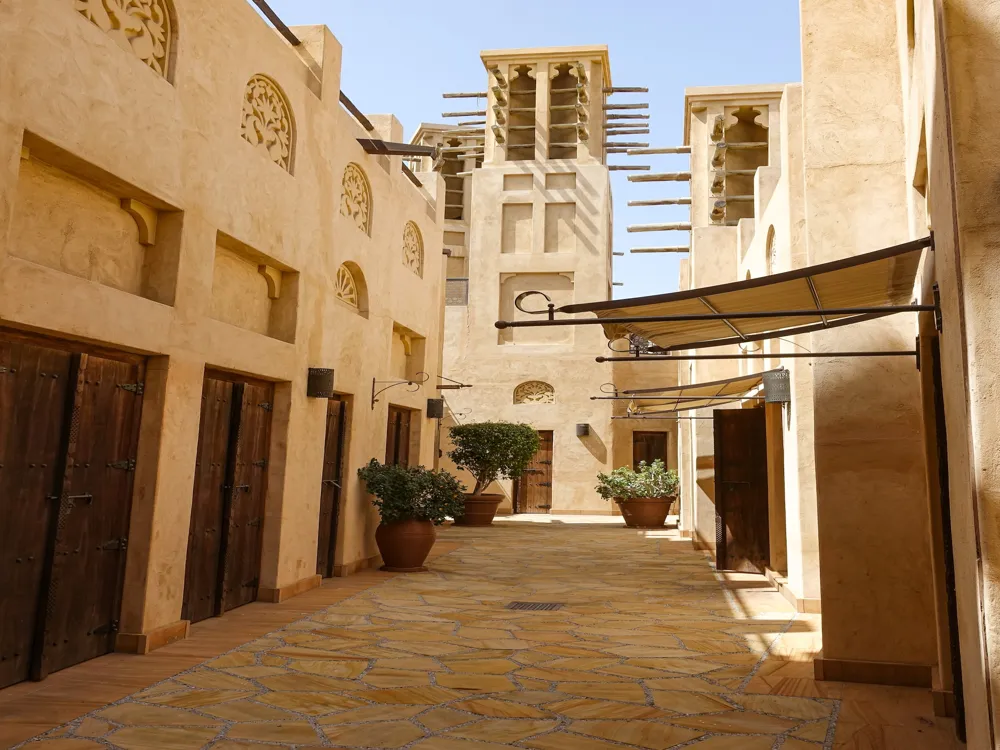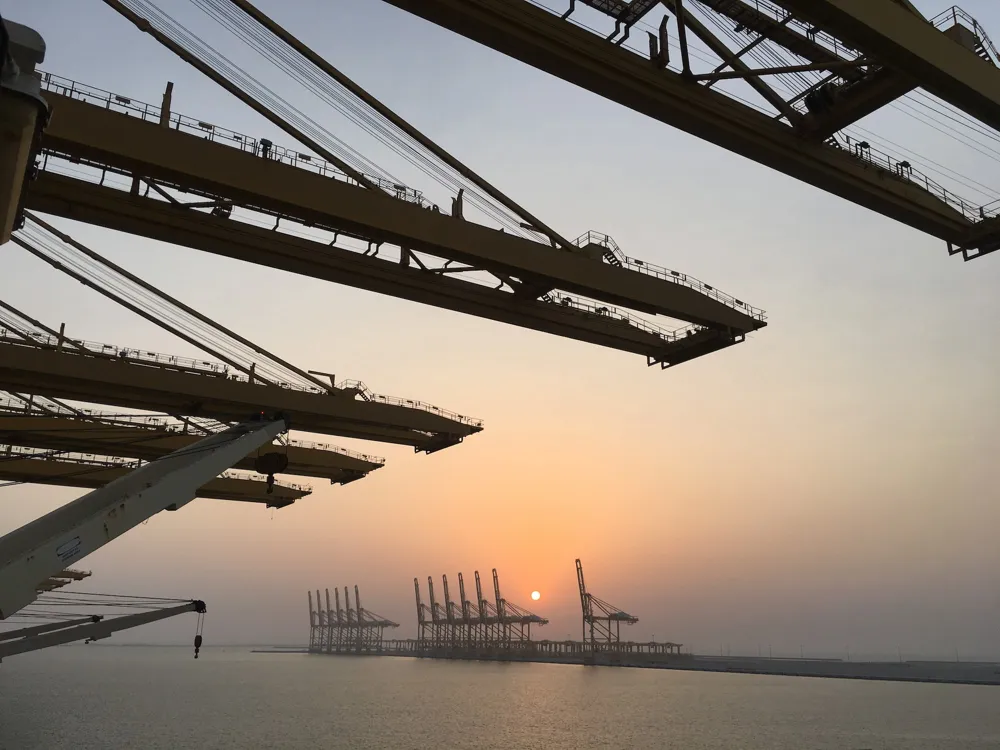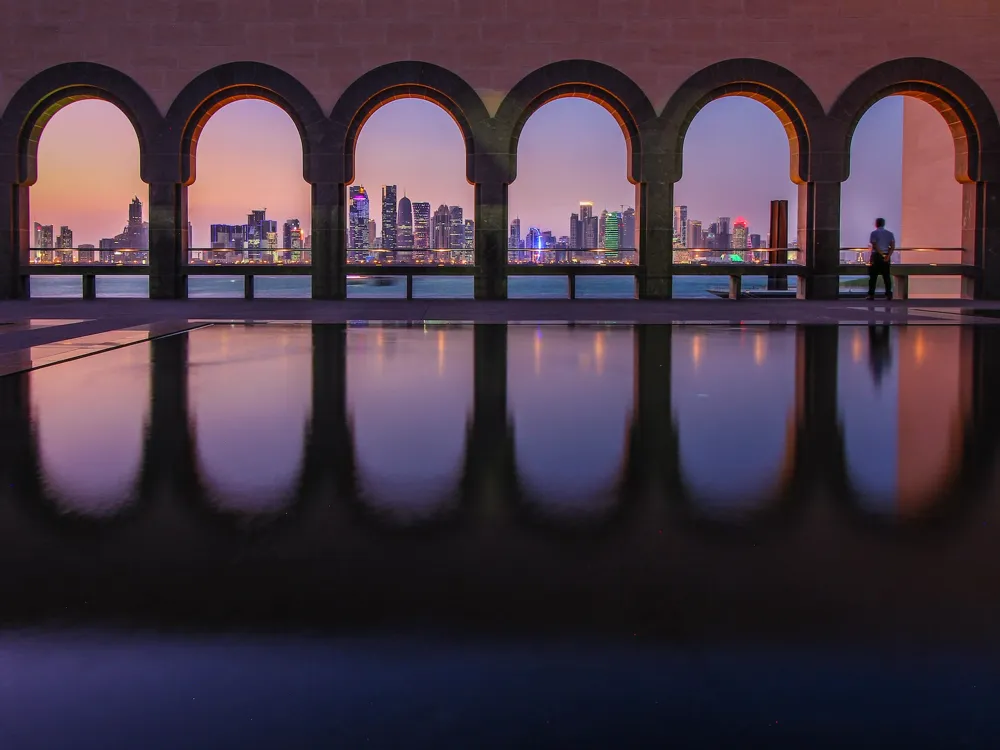Abu Dhabi, the capital city of the United Arab Emirates, is a fascinating blend of tradition and modernity. Located on an island in the Persian Gulf, it has grown from a small fishing village to a bustling metropolis and a key player in the global arena. Abu Dhabi is renowned for its visionary urban development, rich cultural heritage, and as a center for political and industrial activities in the UAE. The city's history dates back to the 3rd millennium BCE, and it has been inhabited by various cultures and civilizations, each leaving its mark. The discovery of oil in the 1950s marked a turning point in Abu Dhabi's history, propelling it into rapid development and wealth. Today, it is a cosmopolitan city with a diverse population, offering a high quality of life and a multitude of attractions ranging from stunning mosques to impressive skyscrapers, lush parks, and world-class shopping malls. Abu Dhabi's commitment to preserving its cultural heritage amidst its modernization is evident in its museums, traditional markets, and the preservation of historical sites. The city also hosts various cultural festivals and sporting events, attracting visitors from all around the world. With its warm climate, beautiful beaches, and unique desert landscapes, Abu Dhabi offers a distinct and memorable experience for all who visit. Abu Dhabi's architecture is a remarkable fusion of traditional Arab designs and ultra-modern structures. The cityscape is punctuated by towering skyscrapers, opulent hotels, and futuristic buildings that reflect the city's wealth and ambition. Traditional architecture, with its unique Arab characteristics, is also prominently featured, preserving the city's cultural identity. One of the architectural marvels of Abu Dhabi is the Sheikh Zayed Grand Mosque, an exquisite example of Islamic architecture. The mosque, one of the largest in the world, features 82 domes, over 1,000 columns, 24-carat gold gilded chandeliers, and the world's largest hand-knotted carpet. The design of the mosque incorporates elements from different Muslim civilizations and was built using materials sourced globally. In contrast, the Louvre Abu Dhabi, designed by renowned architect Jean Nouvel, is a testament to the city's embrace of contemporary architecture. The museum's iconic dome, a geometric lace of stars, creates a 'rain of light' effect, inspired by the interlaced palm leaves traditionally used in local roofing. This blend of traditional and modern elements symbolizes the city's cultural bridge between East and West. Another noteworthy structure is the Capital Gate building, known for its striking lean, making it one of the most distinctive buildings in the world. This skyscraper exemplifies Abu Dhabi's bold approach to contemporary architecture and its desire to push the boundaries of design and construction. Abu Dhabi's architectural journey is not only about grand structures but also about sustainable and smart urban development. The city is home to Masdar City, one of the world's most sustainable urban communities, which is a model for green development. Its buildings are designed to reduce energy and water consumption, utilizing renewable energy sources, thus reflecting the city's commitment to sustainability. The ideal time to visit Abu Dhabi is between October and April when the weather is cooler and more pleasant, making it perfect for exploring the city and its outdoor attractions. Visitors should dress modestly, especially when visiting mosques and traditional areas. It's advisable to research local customs and etiquette to show respect for the local culture. Abu Dhabi has an efficient public transportation system, including buses and taxis. Renting a car is also a popular option for those who prefer flexibility in travel. Arabic is the official language, but English is widely spoken. Learning a few basic Arabic phrases can be helpful and is appreciated by locals. Abu Dhabi offers a range of accommodations, from luxury hotels to budget options. It's advisable to book in advance, especially during peak tourist seasons and festivals. Abu Dhabi is easily accessible by air, with the Abu Dhabi International Airport serving as a major hub connecting to various global destinations. The airport is well-equipped with facilities and is located about 30 minutes from the city center. For regional travel, there are road connections to other Emirates and neighboring countries. Public buses, taxis, and car rentals are available for transport from the airport to different parts of the city. Additionally, Abu Dhabi is a stop for many cruise liners, offering another scenic route to reach the city. Read More:Overview of Abu Dhabi
Architecture of Abu Dhabi
Tips When Visiting Abu Dhabi
Best Time to Visit
Dress Code and Cultural Sensitivity
Transportation Tips
Language and Communication
Accommodation
How To Reach Abu Dhabi
Yas Mall
Abu Dhabi
₹ 23,000 onwards
View abu-dhabi Packages
Weather :
Tags : Shopping
Timings :
Saturday to Wednesday - 10:00 AM to 01:00 AM
Thursday and Friday - 10:00 AM to 12:00 AM
Planning a Trip? Ask Your Question
Abu-dhabi Travel Packages
View All Packages For Abu-dhabi
Top Hotel Collections for Abu-dhabi

Private Pool

Luxury Hotels

5-Star Hotels

Pet Friendly
Top Hotels Near Abu-dhabi
Other Top Ranking Places In Abu-dhabi
View All Places To Visit In abu-dhabi
View abu-dhabi Packages
Weather :
Tags : Shopping
Timings :
Saturday to Wednesday - 10:00 AM to 01:00 AM
Thursday and Friday - 10:00 AM to 12:00 AM
Planning a Trip? Ask Your Question
Abu-dhabi Travel Packages
View All Packages For Abu-dhabi
Top Hotel Collections for Abu-dhabi

Private Pool

Luxury Hotels

5-Star Hotels

Pet Friendly





